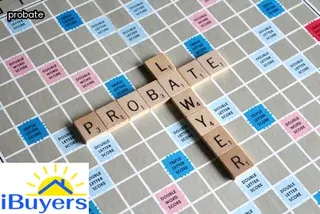The process of settling an estate following the sale of a house in Illinois can vary greatly depending on whether the probate is supervised or independent. Supervised probate must be opened in court and requires approval from a judge before any distributions can be made.
The process is typically more lengthy and costly since each step must be approved by the court. On the other hand, independent probate does not need approval from a court and allows for more autonomy to distribute assets as soon as possible.
It is important to note that certain conditions must still be met for independent probate, such as filing all required documents with the appropriate government offices. In addition, some estates may require supervised probate no matter what, so it is important to consult with an experienced attorney to determine which option is best suited for your particular situation.

In order to file a will in Illinois, there are a few crucial requirements that must be met. First, the person making the will must be at least 18 years old and of sound mind.
Next, the will must be in writing and signed by two witnesses who are not beneficiaries of the estate. Additionally, it is important to remember that any changes or additions to an existing will require a new signature from both witnesses for it to become valid.
Furthermore, if the estate is going through probate court, all notices need to be published in local newspapers informing any potential claimants of their rights. Finally, settling an estate after a house is sold in Illinois can take anywhere from several months to several years depending on how complicated the estate is and how quickly all necessary documents can be gathered and processed.
When it comes to settling an estate in Illinois, the process can be quite lengthy and complex. An estate representative has the responsibility of ensuring that the probate process runs as smoothly as possible, which includes overseeing the sale of a home and managing the distribution of assets to heirs.
To ensure a successful settlement, an estate representative should understand all applicable state laws, be well organized, and be proactive when dealing with potential problems. It's also important for them to keep detailed records of all transactions related to the estate.
Estate representatives should also make sure they have access to all relevant documents related to the sale of the house including title deeds and any other legal paperwork involved in the transaction. Additionally, they should work with experienced real estate professionals who are familiar with local regulations and procedures.
By taking these steps, an estate representative can help ensure a smooth probate process in Illinois following the sale of a home.

The process of going through probate in Illinois can be lengthy and complex, so it is important to weigh the pros and cons carefully. One of the primary benefits is that all parties involved in the sale of an estate after a house has been sold in Illinois are officially recognized by the court.
This helps ensure that any disputes or disagreements are settled quickly and efficiently. On the other hand, one potential downside is that it can take up to several months for the process to be completed.
Additionally, there are typically legal fees associated with going through probate, which may add up quickly depending on the complexity of the case. Finally, there may also be certain taxes or other financial obligations that must be taken care of during this process.
All in all, understanding both the benefits and drawbacks of going through probate in Illinois is key when considering how long it will take to settle an estate after a house has been sold.
Though the process of settling an estate after a house is sold in Illinois can take anywhere from a few months to over a year, there are alternatives to probate that may expedite the process. In some cases, it's possible to establish what's known as a small estate affidavit without having to go through probate.
This involves filing an affidavit with the court, proving that the estate doesn't exceed certain amounts and showing proof of death. When approved by the court, this document can be used to transfer title and avoid probate altogether.
Additionally, if the decedent had jointly owned property or assets with rights of survivorship, these will pass directly to the surviving owners and do not need to be part of the probate process. With proper planning and knowledge of legal documents like a living trust, estates can often be settled quickly outside of traditional probate proceedings.

When a house is sold in Illinois, the settling of the estate can take some time. During this process, expenses must be paid and in Illinois, those responsible for paying these costs can vary depending on the type of estate being settled and how it passes through probate.
If the estate is large enough to require probate proceedings, the court may order that fees associated with the proceeding are paid out of estate assets. The executor or administrator of the estate is usually responsible for ensuring all applicable debts and taxes are paid out of remaining assets before they are distributed to beneficiaries as part of their inheritance.
In most cases, creditors have priority when it comes to receiving payment from an estate; however, taxes may also need to be paid prior to distributions being made to heirs. In addition, if the deceased’s will requires any additional expenses to be paid out of the estate before distribution can occur, those costs must also be taken care of first.
When calculating the probate cost in Illinois after a house is sold, there are several factors to consider. The amount of assets in the estate and the size of the estate will determine how long it takes to settle.
Depending on the complexity of the estate, certain documents may need to be filed with the court which can add time to the process. In addition, if any disputes arise among heirs or other parties involved with an estate, that can also delay settlement.
An experienced attorney can help provide guidance throughout probate proceedings and ensure all deadlines are met so that an estate is settled as quickly as possible.

When a house is sold in Illinois, the process of settling the estate can take some time to complete. The length of time required to settle an estate depends on several factors, such as the complexity of the will, if there are disputes among beneficiaries or creditors, and what type of probate is necessary for the transfer of assets.
Furthermore, if any property needs to be appraised or distributed among multiple heirs, it could add additional time to the process. If all parties work together in good faith, however, it is possible to minimize delays and complete the probate process in an expeditious manner.
It is also important to understand that certain counties in Illinois may have different requirements or regulations that could affect how long it takes to settle an estate after a house is sold. Ultimately, by taking into account these various factors, individuals can better understand what they need to do and how long it might take them to settle an estate after a house is sold in Illinois.
When a house is sold in Illinois, the estate must be settled before the process is complete. However, not all property needs to pass through probate in order for the estate to be settled.
Certain types of property may be exempt from passing through probate if certain conditions are met. For example, if the owner of the house was a joint tenant with another individual and the other tenant still survives after the house has been sold, then no probate would be necessary.
Similarly, if title to the house had already passed to a surviving beneficiary or beneficiary's trust prior to its sale, then no probate would be required. Finally, any property that has already been transferred into a living trust prior to the sale of the house will not need to pass through probate either.
A knowledgeable attorney can assist in determining which types of property are exempt from passing through probate in Illinois so that an estate can be settled as quickly as possible after a house is sold.

When an estate is sold in Illinois, settling the estate after the sale can take months or even years. In order for the process to begin, certain documents must be filed with the court to start a probate proceeding.
These documents typically include a Petition for Probate of Will and/or Letters of Office, Certificate of Death, Original Will (if applicable), Affidavit of Heirship (if no Will exists), Notice to Creditors and other related forms as needed. It's important that all required documents are gathered together before filing them with the court system.
If all necessary documents have been acquired, an attorney can help guide you through the process of submitting them to the court and initiating a probate proceeding in Illinois.
In Illinois, beneficiaries of an estate have certain rights during the probate process. This includes the right to receive a copy of the will, the right to receive notice of proceedings related to the estate, and the right to contest or challenge any part of the probate process.
Beneficiaries also have a right to be informed about any assets in the estate, including those that may have been sold prior to death. The length of time it takes for an estate to settle after a house is sold depends largely on how quickly these rights are exercised and how many other assets need to be sold or distributed.
It is important for beneficiaries in Illinois to understand their rights in order to ensure that they receive their rightful portion of an estate's proceeds in a timely manner.

In Illinois, a will does not have to be filed with the court before a person passes away in order to avoid going through probate. Instead, individuals have the option of creating living trusts or utilizing other methods for transferring assets outside of probate.
This can help expedite the settlement process after a house is sold in Illinois; in most cases, it takes anywhere from three to nine months to complete all activities related to settling an estate. It's important to note that while avoiding probate can save time and money, any disputes that arise among heirs may still need to be handled by the court.
Regardless of whether a will is filed before or after death, having an experienced attorney guide you through the process can help ensure that all legal requirements are met and your wishes are respected.
In Illinois, there is a time limit to settle an estate after a house is sold. The exact timeline depends on the complexity of the estate and can be affected by factors such as real estate transactions, taxation regulations, inheritance law, probate issues or other legal matters.
Generally speaking, it can take anywhere from 6 months to 2 years to complete the process. It is important to note that this timeframe may be shortened or extended depending on the individual case.
In addition, the executor of the estate has a fiduciary duty to settle all debts and distribute any assets according to state laws. As such, it is essential for an executor to work with an experienced legal professional who understands Illinois state law in order to ensure that all aspects of settling an estate are handled properly and in a timely manner.

In the wake of selling a house in Illinois, an executor typically has no less than six months to distribute assets. This timeframe is generally established by the Circuit Court of the county where the decedent lived at the time of death.
The executor must also file a final return with the court within this time frame, which details all transactions and distributions that have been made. This must be done even if all assets have not yet been distributed.
The court will then review the filing and issue a discharge of liability for the executor, thus ending their responsibility for settling the estate. It is important to note that this timeline may be extended if there are complications or delays in selling assets or collecting debts owed to the estate.
In these cases, it may take longer for an executor to settle an estate after a house has been sold in Illinois.
Settling an estate in Illinois can be a complicated process, but it is important to ensure that all parties are satisfied with the outcome. When a house is sold in Illinois, the process of settling the estate begins and can take several months to complete.
It is important to understand the steps involved in settling an estate and the timeline for when each step must be completed. One of the first steps is to submit a probate petition which must be filed within six months of the date of death.
This will require a personal representative or executor to collect information regarding assets, debts, and any other claims against the estate. Next, creditors must be notified and given an opportunity to file claims against the estate.
After all claims have been settled, assets will need to be distributed according to state laws. The entire process may take several months depending on how complex the estate is and whether there are disputes between family members or creditors.
To ensure that everything goes smoothly during this time period, it is important for those involved in settling an estate in Illinois to consult with legal counsel who can provide guidance throughout the process.
Settling an estate after a house is sold in Illinois can be a lengthy process. Generally speaking, it takes anywhere from six to nine months for an estate to settle once the house has been sold.
This time frame may vary depending on the circumstances of the estate and how quickly the executor of the will responds to requests. The length of time will also depend on how many assets are included in the estate and any unresolved debts that need to be paid out before final distribution of assets can occur.
The executor also needs to ensure that all taxes and fees related to the sale are taken care of before closing occurs. Additionally, if there are any disputes among beneficiaries or creditors, this could add additional delays in settling the estate.
Therefore, it is important that those involved in settling an estate remain patient while they wait for everything to be finalized.